Eating Organic - The Dirty Dozen and The Clean Fifteen
- Vicky Sham

- Sep 25, 2018
- 6 min read
What is not to like about fruits and vegetables, they are delicious and nutritious. They help protect against cancer, cardiovascular disease and manage appetite for those seeking weight management. Some Atkins followers or Keto-fans may baulk at the sight of anything fructose related, but they have got to love vegetables for their vitamins and minerals content, and also to keep business going!
Vegetables are so versatile, non-starchy vegetables like kale, spinach and broccoli can pair equally well with a juicy steak (for meat-lovers) or quinoa (for vegans). Dark leafy greens are the best match with almost anything as their alkalinity and fibre content aid digestion. Note that for best digestion, try not to eat animal protein and starchy vegetables (potatoes, squash and grains) in the same meal.
As you gorge on those crispy apples and munch on those crunchy kale salads, have you ever thought that all that goodness (nutrients) might also come with the bad (pesticides residues)?
Pesticide Exposure
Pesticides are chemicals used to protect plants and crops from weeds, fungi and insects. There are more than 1,000 pesticides being used around the world. Many older pesticides such as dichlorodiphenyltrichloroethane (DDT) are now banned in many countries because of human toxicity and that they can remain intact in the environment for many years. Pesticide exposures are most common occupationally in the agricultural and pest control industries. For most of us, exposures are typically through home and garden use, residues in food and drinking water.
The Impact on Our Health
The impact of pesticides on our health is dependent on the amount, period of exposure as well as toxicity and persistence of the compounds. Studies found that exposure to pesticides are linked to hormone disruption, brain and nervous system toxicity, skin, eye, and lung irritation. The Agricultural Health Study in the United States has found some evidence of a link between various diseases (rheumatoid arthritis, lymphoma, thyroid disease, cancer) and long term exposure to certain pesticides. Of course, more and longer term research is needed and the AHS continues to perform studies to improve our understanding of the impact of pesticide exposure.
The Impact on Pre-School Children
Since the 1990s, several long term studies have been conducted to measure the impact of pesticides on the development of preschool children. All children in the study were living in the same area in Yaqui Valley of Sonora in Mexico with very similar genetic, cultural, social and behavioural traits, except for the environment: valley vs foothills. The valley children were more exposed to pesticides than the foothills children, because agriculture was the main employment in the valley, whereas ranching was predominant in the foothills. The results showed significant psychological and physiological differences between these two groups. The valley children with more exposure to organophosphate pesticides developed poorer hand-eye coordination, lower physical stamina, poorer short term memory and trouble drawing.
Personally I find the results astounding. If just four to five years of persistent exposure could have such a big impact on these children, what would be the impact of much longer term exposure? Just think about the quantity of fruits and vegetables an individual consumes over a lifetime. It is true that most of us do not live in fields, we are unlikely to be involved in a pesticide spillage accidents or experience anywhere near those levels of exposure as farmers or fruit pickers. However, since we do not know the exact type and amount of pesticides we are exposed to on a daily basis, it is worth paying attention to what we can control in order to minimise our exposure to pesticides.
How to Avoid Pesticides?
One simple solution is to eat organic. Eating organic can help to reduce exposure to chemicals and minimise disruptions to our body systems. I will also share a list of foods with the highest and lowest levels of pesticides, so you will know how to grocery shop the smart way.
What is Organic?
Organic food or farming refers to farm management and food production without the use of chemical or synthetic fertilisers, pesticides or other artificial chemicals. Organic farming supports biodiversity through crop rotation, preservation of minerals in soil and high standards of animal welfare. Organic products are free of genetically modified organisms (GMOs), antibiotics, synthetic growth hormones, artificial preservatives, flavours and colours.
For the EU definition of Organic Farming, click here. For Behind the USDA Organic Seal, click here and USDA Organic Labelling, click here.
Eating Organic
Eating 100% organic can be easy for some but impractical and expensive for others. Many countries have well-developed regulations and labelling standards where it is becoming easier and cheaper to buy organic. In other parts of the world, labelling standards may be relatively new or not strictly enforced, however it doesn't necessarily mean their products are unsafe. There are plenty of small scale farms which are already using organic methods but may not have the resources to obtain certification. Consider this: would you prefer your local farmers spending more time on getting their produce certified as organic or focusing their energy on growing your food in the best possible way? It is worth making an effort to look up local distributors and farms in your area and learn more about how they treat and grow their produce. It is never too late to get interested in how your food is grown and find a way to support sustainable farming.
Buying Organic meaningfully
Buying organic may be expensive, but you know your money is going to a good cause, firstly to support you and your loved ones' health and secondly to encourage more sustainable farming. It also sends a signal to the food manufacturers and agribusiness that we do not want harmful pesticides in our food and they better start pouring their resources into R&D on more environmental pesticides and insecticides.
Every year the Environmental Working Group in the US analyses and publishes a list of fruits and vegetables most laden with pesticides. The infamous Dirty Dozen contain the highest concentration of pesticides out of 47 most popular fruits and vegetables. If you want to minimise pesticides in your food, buy and eat organic versions from the Dirty Dozen list.
Strawberries
Spinach
Kale
Nectarines
Apples
Grapes
Peaches
Cherries
Pears
Tomatoes
Celery
Potatoes
Hot Peppers
The 13th of the Dirty Dozen
In 2018, the EWG has added an additional item to the Dirty Dozen list. The USDA tested over 700 samples of hot peppers and found samples with insecticides that are toxic to the human nervous system. The EWG report recommends that if you cannot find or afford organic versions of hot peppers, cook them, because pesticides levels typically decrease when the food is cooked.
There is also a list of Clean 15 fruits and vegetables which are least likely to be contaminated with pesticides. Most items on this list have only a few pesticides in them or in very low concentrations. So when organic options are not available or too expensive, feel comfortable to buy conventional ones from this list.
Avocados
Sweet corn
Pineapples
Frozen Sweet Peas
Onions
Papayas
Eggplants
Asparagus
Kiwis
Cabbage
Cauliflower
Cantaloupe Melons
Broccoli
Mushrooms
Honeydew Melons
If You are Outside the US
You may not live in the US and it is true that more pesticides (e.g. neonicotinoids) are banned by the EU, it is likely that other parts of the world may use the same or similar pesticides on their crops as the US. I hope this list can still be relevant and complementary to any guidelines available in your geographical area.
Enjoy Your Vegetables
Please don't be scared about pesticides to the extent that you avoid vegetables all together. Even your bread, cereal bars, cookies, rice, noodles and most snacks have been grown somewhere in the fields! Fruits and vegetables are the least processed whole foods essential for your health. You can wash them more thoroughly, soak, peel and cook as much as you reasonably can. Also note that the EWG updates the Dirty Dozen and Clean Fifteen lists every year, so remember to keep up with the latest information from EWG and your local resources. Most of all, enjoy your food!
Further information
5. An Anthropological Approach to the Evaluation of Preschool Children Exposed to Pesticides in Mexico





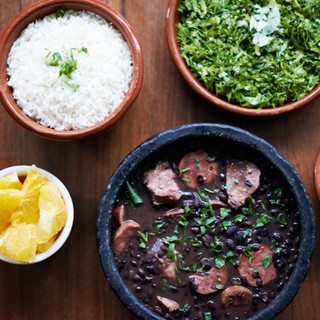



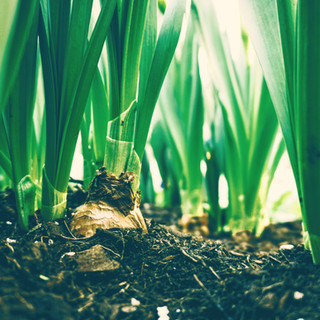

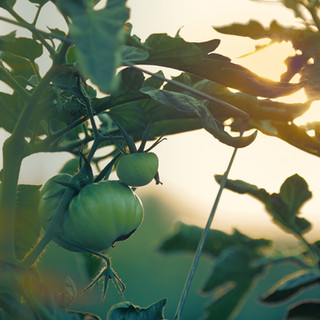



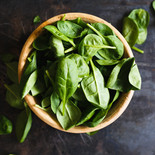



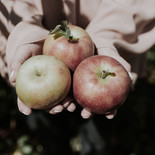









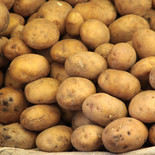



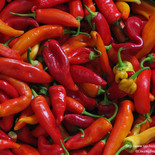













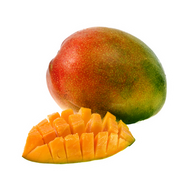

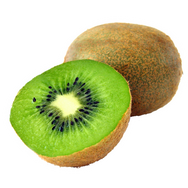



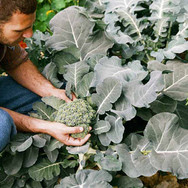



Comments